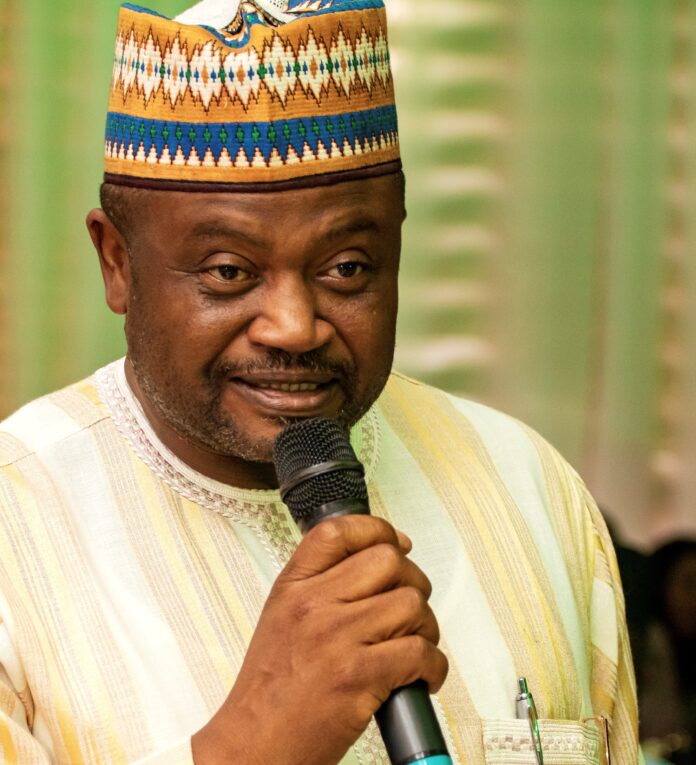Prof Zamani steps into the shoe of Saths Cooper, the South African outgoing president of PAPU, who also heads the International Social Science Council.
By Ishaya Ibrahim, News Editor
A Nigerian, Prof Andrew Ezadueyan Zamani, has emerged as the president of the Pan African Psychology Union (PAPU), the continental think-tank of psychologists in Africa.
Prof Zamani leads the regional body of PAPU established 10 years ago following the Cape Town declaration that gave rise to the body whose vision is to promote scholarship and human development in communities, countries, Africa and the world.
Prof Zamani steps into the shoe of Saths Cooper, the South African outgoing president of PAPU, who also heads the International Social Science Council.
Prof Zamani is a professor of Clinical Psychology with the Nasarawa State University, Keffi, and is currently the Director, of the Institute of Governance and Development Studies of the university. He served as the President of the Nigerian Psychological Association between 2011 to 2017.
READ ALSO
US Consulate invites applications for 2022 AWE scheme
Prof Zamani, who is a fellow of the Nigerian Psychological Association (NPA), Nigerian Association of Clinical Psychologists (NACP) and Association of Practicing Psychologists of Nigeria (ASPPON), is also a recipient of many awards.
He tells TheNiche about the Pan African Psychology Union (PAPU), which he will lead. Excerpt:
What such an election means to you
I emerged as President-elect of the Pan African Psychology Union on the 28th March 2022. I will be working with a veteran psychologist, civil rights leader and world-renowned Psychologist, Prof. Saths Cooper of South Africa. This man has led the Psychological Society of South Africa and the International Union of Psychological Sciences as President at various times. While his shoes are too large for me to wear, I am glad that I have worked with him since 2013 in the Executive Council of PAPU and will do so a little longer but this time as an intern- President. I am glad that his big reputation sets a high standard for performance. I am glad, extremely glad that destiny has bestowed such great honour on me.
What does your emergence mean to Nigeria?
My ticket on the Executive Committee of PAPU was accorded because I was President of the Nigerian Psychological Association at the time the Union was formed. At the time of formation, the Nigerian Psychological Association signed a memorandum of understanding with the Psychological Society of South Africa to cooperate in the scholarship and practice of psychology. We forged friendships with other national psychology organizations in Africa and built confidence. I believe colleagues all over Africa have built confidence over time and believe that at this time, Nigeria has what it takes to lead the profession in Africa. It’s quite a great honour.
The significance of that body, Pan African Psychology Union
PAPU is the African regional voice of Psychology. It is the umbrella professional body of Psychology in Africa. Its goals are to unite psychologists on the continent, harness their resources and potential for development, promote the development of Afri-centric psychological thought in scholarship and to entrench psychology as a catalyst for national development.

What attracted you to that field of discipline in the first place.
While growing up, an uncle lived with us. He is Ibrahim Sanya, my mother’s younger brother. I was in primary six at the time he joined us to do his teacher training program. We were close to the point that he shared most of what he learned in school with me whenever he returned on holiday. He always told me about psychology as a topic in the principles of education that they had to learn. My understanding of what he shared was that psychology enabled one to read the mind of others, understand them and be of relevant assistance to them. This struck me and so I decided that I would be a psychologist. When I got to secondary school, I learnt that the immediate Past Principal of the school was a psychologist who read students’ minds, determined their guilt and innocence as well as supported them through personal difficulties. This discovery validated my ambition. I kept this ambition in perspective and worked towards becoming a psychologist. Thank God, I am one and by his grace, a leader of thought in Africa.













